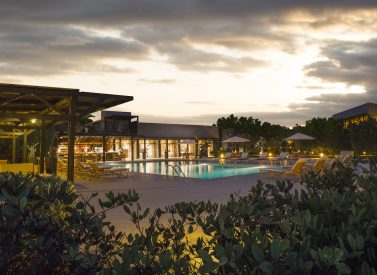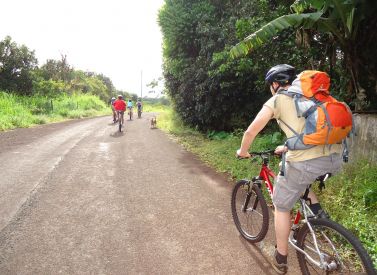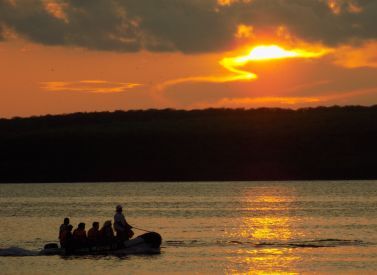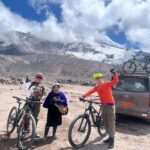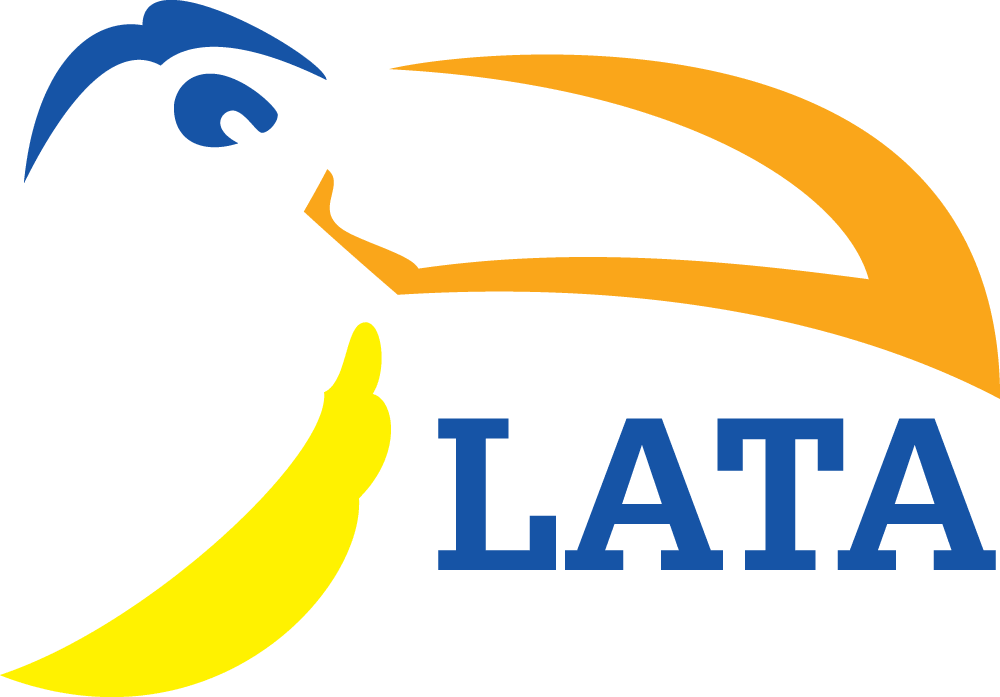
Galapagos Land Tour: Santa Cruz & Isabela
This hotel-based land tour brings you the best of Isabela and Santa Cruz Islands.
Enjoy the best trips, snorkelling with amazing marine life and getting up close to animals on land.
Evenings are spent free to roam these relaxing islands, sleeping in cosy hotels and waking refreshed for another adventure.
We dedicate eight days to discover these two majestic islands, mixing activity, relaxation and enjoyment.
More on Galapagos land tours
You join up with different groups during the day.
Tours available include a hike up Sierra Negra volcano on Isabela and visiting Giant Tortoises on Santa Cruz.
In the water we offer some great snorkelling – including Tuneles, one of the best snorkels in Galapagos.
As well as getting up close to the tame wildlife, by staying on the islands you get a feel of the lifestyles of the people who live on the Galapagos.
The following is a guideline tour; we can offer a wide variety of day trips with this itinerary.
Read more in our blogs about day tours:
Trip Highlights
Print Share Download as PDF-
Snorkel with sea turtles, sea lions and more, including sharks and turtles.
-
In-depth visits to two of the best Galapagos islands - Isabela and Santa Cruz.
-
Hike up the active volcano Sierra Negra, and see one of the biggest calderas in the world.
-
See the famous giant tortoises in their natural habitat.
-
Completely flexible itinerary - add more activities, islands, diving - the choice is yours.
-
Choose from two to five star hotels (where available) to suit your budget.
This has to be one of my best trips ever!! Highly recommended! The Galapagos has to be on everyone's bucket list!
I am reborn! Simply the best holiday I have ever been on. I don't think I would change anything.
MY Chang, Galapagos
Full Itinerary
Day 1: Santa Cruz Island – Highlands – Charles Darwin Station (L)
After arriving at Baltra Airport we take a bus, short ferry ride and then a hike to the Highlands of the island.
Here, we visit the Primicias Ranch where we will be bushwalking and looking for some Giant Galapagos tortoises.
After a walk, we visit the lava tunnels and have lunch in a typical farm restaurant.
We continue down to Puerto Ayora where we tour the important Charles Darwin Research Station, and visit some of the largest Galapagos tortoises and land iguana breeding centres.
The local guide will give us a detailed explanation about the islands’ evolution.
Drop off at your hotel, evening free to explore the town and eat in one of the local restaurants.
Day 2: Santa Cruz Bay Tour – Boat to Isabela Island (B,L)
In the morning we take a tour around the bay of Santa Cruz, and get into the water for the first time – a great experience in Galapagos.
We start at Punta Estrada, a small gulf of calm waters, and a place where you can see Terns, Boobies, Frigates and sea lions. We jump into the water here, for our first snorkel of the trip.
Having swum with (hopefully) sharks, fish, sea lions and turtles, we visit the Sharks’ Channel. This was formed by magmatic chamber swellings. From the viewpoint you can see the port and the upper part of the Santa Cruz.
Next, we hike 15 minutes to a beach, to an area called The Channel of Love, another fissure formed by magma – very scenic.
Finally, we head towards to Las Grietas, where we can enjoy some snorkelling. We then walk back to the boat and then return to Puerto Ayora.
Lunch in Puerto Ayora.
In the afternoon, a speed boat takes us to Isabela, one of the most beautiful islands in the Archipelago.
After a cruise of 2 ½ hours we reach this corner of paradise where a local transfer takes us to our hotel to relax.
Evening free to explore the small town and restaurants.
Ferry Speed Boat Crossings:
Residents and tourists alike use this method of shared transport regularly between the main inhabited islands. Out on the open ocean, this is your best chance to see whales and dolphins. Each crossing takes about 2 hours. Less time if the sea is calm, more time if the sea is rough. Boats are usually 30-35 feet long and hold 20-30 passengers. If you’re prone to seasickness or not sure, bring some seasickness pills just in case.
Day 3: Wetlands – Wall of Tears – Orchilla Viewpoint – Breeding Centre (B,L)
Today we walk through the Wetlands and drive to visit the Wall of Tears.
This historical place was built by the prisoners of Ecuador’s first jail – your guide will explain more about its history.
On our way back we stop at the Orchilla Viewpoint. From the top you can see the entire coastal wetland system including Poza de los Diablos, Puerto Villamil, the beaches, the volcanoes and the islets to the south-east of Isabela. It’s a great location for a panoramic photo on clear days.
Next we visit the Giant Tortoise Breeding Centre where you can observe tortoises of all ages and sizes. We also learn about the breeding and farming of giant tortoises and see all the work that is being done to help recover the wild populations of these species.
Return to the hotel.
Day 4: Isabela – Concha Perla (B,L)
After breakfast we head to a nearby lagoon to look for endemic flamingos and birdlife. From here we continue with a visit to the giant tortoise breeding centre to learn about their breeding and re-population programme.
There is a lot to see here, mangroves, penguins, turtles and reef sharks to name but a few.
And finally we jump into the water for some snorkelling fun at Concha Perla. Keep your eyes peels for rays, sharks, turtles and more in this beautiful little bay.
We return to town for lunch in a local restaurant.
Free afternoon.
Dinner on own and overnight in local hotel
Day 5: Sierra Negra and Chico Volcano Walk (B,L)
Lace up your hiking boots, we’re off to a volcano! Sierra Negra Volcano is one of the most active volcanoes in Galapagos; it last erupted as recently as October 2005. A short uphill hike takes us to the perimeter of the caldera.
We start with a short hike uphill to the perimeter of the caldera. From here, there’s a nine kilometre view stretching across one the most active calderas in the world. Our hike takes us over the expansive lava fields of Chico volcano to a lookout and stunning views out to the north of Isabela Island. Boxed lunch.
In the afternoon return to Puerto Villamil and our hotel, free evening.
Volcano hike notes: You walk 2-4 hours with frequent rest stops and a lunch break. From the National Park checkpoint, there’s about a 45-minute walk uphill to the rim of the volcano. The trail around the rim has only slight up and downs with a few short steep inclines. The lava fields of Volcan Chico are uneven and rocky in areas.
The path in and out is dirt: if it’s been raining, it could be muddy. There’s one proper bathroom at the beginning of the trail. The majority of walking is on level terrain. If you have weak ankles, use athletic braces and wear hiking boots. If you have knee trouble, bring a hiking pole or two. This is a non-technical hike.
Day 6: Tintoreras – free afternoon (B,L)
Breakfast at the hotel and then we visit Tintoreras.
This tour consists in three activities: snorkel, trekking and a Panga ride.
We start with the Panga ride which lasts 40 minutes during which we can see penguins and Blue-Footed Boobies.
Next, we disembark in the islet and continue walking for around 40 minutes on the lava and beaches we find. Hopefully, we can see marine iguanas, sea lions and sharks. Nearby hundreds of marine iguanas can be observed, as ‘Las Tintoreras’ is one of their main breeding sites.
A colony of white-tip reef sharks can often be seen resting in a lava canal.
We finish this tour with a snorkel so you can have a close encounter with marine fauna, and be able to see sea lions, sharks and turtles.
Return to Puerto Villamil and free afternoon to rest, or enjoy the beach. Evening free.
Day 7: Tunnels of Cape Rosa – free afternoon (B,L)
Prepare yourself for one of the best days of this trip!
After sailing for 45 minutes from Puerto Villamil, we reach Cape Rosa on the western side of the island. This is one of the most beautiful and amazing places nature has bestowed upon humankind.
Here we can walk over the connected lava tunnels surrounded by the crystal sea waters. From the surface, you may be able to see dozens of turtles, penguins and rays. You can also snorkel or simply swim along with this rich marine fauna.
As we sail to and from Isabela, we might be able to see manta rays of different sizes, a truly unique experience. And if it is their mating season, we can watch them floating upside down on the surface, perfect for having their pictures taken.
Return to the hotel.
The afternoon is yours to explore the island, relax on the beach or perhaps play volleyball with the locals.
Day 8: Speedboat to Santa Cruz, transfer Baltra Airport, fly out (B)
We have an early departure on the public speed boat back to Puerto Ayora.
We take a bus across Santa Cruz Island to Baltra Airport for our flights to the mainland.
Inter-island flights
There is an option to take take an inter-island flight in a light aircraft with 5-9 seating capacity (extra cost). This needs to be reserved at least 48 hours in advance.
The flight from Isabela to Baltra airport takes around 30 minutes and connects with flights to the mainland (no Isabela-Baltra flights on Sundays).
San Cristobal Extension
Extend your trip by a few days and fly Isabela to San Cristobal. Ask us for more information.
Prices From $2,412 / £1,961 per person
What's Included?
Accommodation in double or triple room with private bathroom, meals as specified, land and sea transport, daily group trips as listed, mountain bikes, snorkelling equipment, shared airport transfers as specified.
What's Not Included?
International flights, Ecuador-Galapagos return flights, Galapagos National Park entrance fee, Ingala transit card, alcoholic drinks, soft drinks, tips, meals other than stated, anything not specified in the package, optional diving (please enquire about diving packages), wetsuits, Quito services, Isabela port arrival tax, water taxis
Accommodation
Hotels – singles, twin, doubles and some triples and family rooms available.
The islands aren’t known for glamorous lodgings, and our starting price hotels are standard hotels (comparable to 2* hotels), that we have chosen on the basis of comfort and cleanliness.
Upgrades to 3-5* hotels available on request (extra cost).
Tour Staff
Staff are “Galapagueños”, most of the guides, captains and crew members were born and raised in the Galapagos Islands.
They know the area well and are prepared to show you the islands only like a native can do it.
Our Naturalist-English speaking guides have studied and been trained at Charles Darwin Scientific Station, and have long years of experience guiding at the Galapagos Islands.
Meals
We can cater for many special dietary requirements on this tour. Please let us know at the time of booking.
Breakfasts at hotels and lunches are provided on this tour.
Lunch will either be a packed lunch while on a trip, or your guide will take the group to a locally-run restaurant on the island, where they will be a choice of dishes. Galapagos is a very remote area and not everything is available here.
Typically, there is a lot of eggs, fish, chicken, rice and some potatoes, plus fresh fruit and vegetables and coffee. There are also international plates such as pasta, pizza, hamburgers etc.
When you have free time (evening meals) to choose your own meals, our guide can make recommendations or you can explore on your own.
Activity Level
This is an active tour where you will have 1-2 activities each day, each being 2-3 hours in length.
Snorkelling last 1-2 hours usually, depending on water temperatures.
The hiking day on Sierra Negra involves 4-5 hours of walking in total. A shorter, 1-2 hour hike is possible, too – please ask at time of booking for the shorter hike.
All activities are within the scope of people that like to be active. No previous experience is necessary for any of the activities, however, as none are designed to be overly strenuous.
Practical Information
Introduction to Galapagos
These magical islands comprise of 50 volcanic islands of varying shapes and sizes, which lie 1,000 kilometres off the coast of Ecuador.
Here, unlike anywhere else on Earth, you can enjoy a thousand close encounters with a weird and wonderful variety of ‘friendly locals’, including giant tortoises, fur seals, sea iguanas, frigate birds and blue-footed boobies.
Read our Galapagos Islands Guide and more about diving.
In 1535, Tomás de Berlanga, Bishop of Panama, floated into this archipelago and named it Galapagos after the giant tortoises he encountered. Pirates used the islands for refuge and to bury their stolen treasure after that.
The islands’ most celebrated visitor was Charles Darwin, who arrived aboard the HMS Beagle in 1835. The rare life forms he encountered helped him formulate his theory of evolution, which he published in The Origin of Species by Means of Natural Selection.
It wasn’t until 1959 when it became part of Ecuador’s national park system that this fragile ecosystem with its rare and endemic species came under protection.
In 1979 the Galapagos archipelago was declared a UNESCO World Heritage Site.
Weather in Galapagos
When to visit Galapagos Islands: weather and wildlife
There is no real ‘best’ time to visit Galapagos on holiday as there is always wonderful wildlife and weather to enjoy. Read our blog for more.
Most animals – tortoises, sharks, sea lions and boobies – are found year round and many of the species here are non-migratory.
The Galapagos Islands are located right on the equator so air and water temperatures do not vary by much.
Having said that, there are two recognised seasons, and each months brings natural marvels for the visitor to enjoy.
Below is our quick guide to the weather and wildlife you can find on the Galapagos Islands.
General weather information
The warm season (Jan-Jun)
- Calm, clear warm waters, great for snorkelling, often without a wetsuit.
- Great weather, with February and March being the hottest and sunniest months with blue skies and sunshine.
- Occasional heavy bursts of rain in the afternoons.
Sea temperatures: 22-25°C / 72-77°F
Land temperatures: 21-32°C / 72-90°F
The dry ‘garua’ season (Jun-Dec)
- It’s a great time for marine life in the cooler seas. Snorkellers may want a wetsuit.
- August and September the coolest when you may need a jacket in the evenings and the sea can be choppy.
- There can be mist on the islands in the mornings (garua) which usually burns off by midday leaving overcast skies or a sunny afternoon.
Sea temperatures: 15-22°C / 60-72°F
Land temperatures: 18-24°C / 65-75°F

Air and sea temperatures in Galapagos, month-by-month
Galapagos park fees
Before you fly from Quito or Guayaquil airport, you need to pay USD 20pp for a transit control card. Some cruises pre-pay this and include it in your trip cost.
On arrival in the Galapagos, you will be asked by a representative of the Galapagos National Park to pay the Park fee in cash (currently US$ 100 per person, USD 50 per person for under 12s).
The dock tax is US$5 on Isabela Island, and the airport tax is US$15 for flights between islands.
All National Park fees subject to change without prior notice.
Galapagos kit list
Good kit is vital for every trip.
Book with Andean Trails and get 15% off Páramo’s fantastic ethical and high performance outdoor gear.
Galapagos – general advice
Galapagos is warm and humid, and you will need t-shirts (moisture wick-away or breathable t-shirts can be very useful, it can get very hot in the day), shorts, lightweight skirt or trousers and bathing suits.
One or two cotton shirts can be used to protect you from sunburn, especially when snorkelling (not very elegant worn in the water over a swimsuit, but practical – and Galapagos is NOT an elegant place!).
You may want to change into different clothes for the evening, but don’t take anything dressy or smart – there really is a very relaxed atmosphere in island hotels.
Pack something warm and windproof for being the inter-island speedboats – and a waterproof for the Highlands.
Strong sandals, trainers, or light hiking boots are ideal footwear – you may like to have something suitable for easy walks and another for tougher terrain – your guide will advise you daily what the walking will be like.
Do take a hat!
Seasickness tablets if you think you will have problems – i.e. Sturgeon, or Mareol if you buy them in Quito. The sea can be choppy, so it is recommended to take them as a precaution.
Galapagos – detailed kit list
- First aid kit – aspirin, imodium, sun tan lotion (facter 50 recommended), sunburn cream, lip salve, throat lozenges, insect repellent, etc.
- Earplugs, if you sleep lightly.
- Sun glasses and sun hat.
- Snorkelling equipment is provided on every tour, but it may suit you better to take equipment in your size that you know will fit you. Even if you have not snorkelled before, DO have a go – under water Galapagos is a very special experience. Try it first of all from the beach, to get the hang of breathing through gritted teeth, then take the plunge!
- Towel, for the beach.
- Money belt.
- Passport, with at least 6 months remaining from date of return from Ecuador.
- US Dollars cash and mixed denomination notes, undamaged and unmarked.
- Visa/MasterCard, Cash card.
- Personal & Medical insurance.
- Camera and film / memory cards (take at least twice the amount you think you will need!). You may want to take an underwater camera for snorkelling.
- Camera charger
- Binoculars
- Small backpack – to keep your sun cream, water, shirt etc in when you are on shore/activity.
- Small plastic water bottle, 1-2 litres, depending on how much you drink.
- Biodegradable (v. high factor, 50+ recommended) and lip salve.
- Toiletries (featuring biodegradable soap).
- Wet Wipes/antiseptic hand wash cream
- Travel alarm clock.
- Sewing kit.
- Spanish/English phrasebook.
- Book, e-book, mp3 player/ipod or other for free time.
The Galapagos Islands are a very fragile environment and the arrival of more and more inhabitants to the islands, as well as tourist have an impact.
Please try to minimise your impact by:
- Bringing a water bottle to refill, rather than using a new bottle each time.
- Recycling your rubbish where possible, not leaving any rubbish behind.
- Taking batteries back home with you – they cannot be recycled properly in Ecuador.
- Saving water where possible.
- Leave toiletries that contain microbeads at home
- Saving energy by switching your lights off when you leave the room. Electricity on the islands comes from a generator, fuelled by petrol. For this same reason, please think about whether you really need to use your air conditioning.
Quito
Pleasantly warm during the day, but can be quite chilly during the morning or at night when you might want a jacket or a fleece, plus a waterproof.
You may want to dress up a little more in the evening here, depending on where you are staying, and what sort of restaurant you like.
Guayaquil
Conditions here are similar to Galapagos – hot and humid. T-shirts and shorts in the day, and like Quito, something smarter for eating out in restaurants at night.
ATOL holiday protection
Andean Trails has 25 years of experience of putting together the best South America holidays.
We pay a fee to the CAA for every licensable passenger we book since we hold an Air Travel Organiser’s Licence granted by the Civil Aviation Authority. In the unlikely event of our insolvency, the CAA will ensure that you are not stranded abroad and will arrange to refund any money you have paid to us for an advance booking.
We also offer ATOL (Civil Aviation Authority) protected holidays to give our customers peace of mind when booking and travelling.
When you buy an ATOL protected air holiday package from Andean Trails Ltd you will receive a Confirmation Invoice from us confirming your arrangements and your protection under our Air Travel Organiser’s Licence number 6275.
You can read more about ATOL, who is covered and what protections you have if not ATOL-covered, on our ATOL page.
What is ATOL?
The CAA’s ATOL scheme offers protection to your money and your holiday if you book with us. Not everybody is covered (see ‘Who is covered?’ for more), as you must purchase an ‘air package holiday’ with Andean Trails to be protected.
And ‘air package holiday’ is defined as including a flight and some ground services (hotel, transfer, trek etc). This is also known as an ‘ATOL-protected holiday’.
Who is covered?
To be covered by ATOL, you must book a flight and some ground services with us and be from the UK. If you are from the UK and only book ground services and no flights, you are not covered by ATOL (see below for more on how non-ATOL clients are covered).
If you are outside the UK and buy flights with us, you will be ATOL protected IF any of the flights booked with Andean Trails touches/stops in the UK at any point during your holiday package booked with us.
If you buy your flights elsewhere, please check with that agent if you are ATOL protected. Be careful with online flight purchases and make sure you know what protection you have, if any, before paying for flights.
Not all holiday or travel services offered and sold by us will be protected by the ATOL scheme. Please ask us to confirm what protection may apply to your booking.
For land only holidays not involving any air travel, in accordance with “The Package Travel, Package Holidays and Package Tours Regulations 1992”, all UK passengers booking with Andean Trails Ltd. are fully protected for the initial deposit and subsequently the balance of all money paid to us, arising from cancellation or curtailment of travel arrangements due to the insolvency of Andean Trails.
I’m not ATOL covered, what protection do I have?
If you are not ATOL covered, any payments you make to us go to a Trust account.
We can only access this money once your tour has been completed, meaning that if anything happens to Andean Trails Limited while you are on holiday, then your money is secure and you can either complete the trip or be able to make it home.
If you pay for your holiday with a credit card, some offer payment protection – please check with your cardholder.
You also should have cancellation protection written into your insurance (which we recommend you have at the time of booking) in case you need to cancel.
Floreana, Galapagos
Floreana is the least populated Galapagos island and yet home to its most scandalous tales!
Gossip aside, it is home to Post Office Bay, where a post barrel was erected in the late 18th century by English whalers. Passing sailors took the messages onwards – and it still functions today.
The nearby Devil’s Crown is one of Galapagos’ most special snorkels.
A (at times strong) current pushes you past the remains of a submerged volcano with its crater ‘horns’ still exposed, and you’ll see a brilliant array of colourful fish and corals.
Great viewpoints at Asilo de La Paz and Baroness view, too.
Isabela, Galapagos
Isabela is the largest and one of the youngest Galapagos islands, and its small human but enormous wildlife population make it perfect for cruises and hotel-based visits.
It also has a mile-long, pristine white-sand beach, with some small and cool bars to hang out in with some sundowners.
Must-do’s include Sierra Negra volcano and its active caldera, head to Los Tuneles to snorkel face-to-face with sharks and turtles and spend some time looking for penguins at Las Tintoreras.
Isabela is great for adventure and families alike.
For cruises only, Punta Vicente Roca is a lovely snorkel, and Urbina Bay is a top spot for wild giant tortoises and colourful land iguanas.
Kicker Rock, Galapagos
A truly impressive sight, Kicker Rock is the remains of an underwater volcano rising vertically 150m/492ft out of the sea.
The exposed cone has fractured in two, leaving a wildlife rich sea channel for us to enjoy, snorkelling or diving.
Jump in the water and drift with the gentle current through the cleft, keeping an eye out below for sea turtles, manta rays and maybe the odd harmless Galapagos shark, just to name a few.
Hammerheads are occasionally seen here too.
On the cliffs, we can spot Blue-footed Boobies, Nazca Boobies and magnificent Frigate birds. A memorable snorkel.
Santa Cruz, Galapagos
Almost everyone will visit Santa Cruz during a Galapagos stay.
It’s popular because of the incredible variety of habitat and animals go alongside its strategic location.
The famous Charles Darwin Centre is a must, as is a visit to see Giant Tortoises and a kayak in the turquoise waters at Garrapatero beach.
There are a plethora of great dive and snorkel sites nearby, lively bars and some good beaches for relaxing, like Tortuga Bay.
Most cruises start or end here, and the majority of flights come to Santa Cruz, plus there are many accommodation options, from basic to luxury.
Santiago (James), Galapagos
Curious, dark sand greets the visitor to this centrally-located island.
Marine iguanas may join you for a snorkel after warming up in the sun, along with white-tipped reef sharks, rays, surgeon and parrotfish and turtles.
Crabs, sea lions and spectacular blowholes line the shore.
On the other side of the island, red sand cliffs are home to many seabirds, and Bucaneer cove tells its own whaling and pirate history.
A group of nearby small rocky islands called Bainbridge Rocks feature a stunning, turquoise saltwater lagoon that is home to flamingos.
The Galapagos Islands
The Galapagos is an ideal year-round destination, with its volcanic landscapes and tame wildlife.
Whether you cruise or stay in a hotel, you are guaranteed to see giant tortoises, sea lions, iguanas and blue-footed boobies to name a few, plus amazing volcanic formations and stunning beaches.
No trip here is complete without diving or snorkelling – turtles, rays, schools of fish, and for the lucky, hammerhead and whale sharks.
Divers can enjoy some of the best underwater diving in the world on liveaboard cruises to remote and spectacular dive sites.
Tower (Genovesa), Galapagos
Flung way out to the north of the archipelago, this spectacular island is a Galapagos in miniature.
Its remote location meaning very few people make it this far.
Sea lions, sharks and Flightless Cormorants will no doubt accompany you on snorkels in deep waters as well as close to the beautiful, white-sand bay.
A multitude of birds nest at Tower, and it’s the only place you’re sure to see the Red-Footed Booby, as well as the chance to spot petrels, owls, gulls and more.
Prices From $2,412 / £1,961 per person
2025 price, shared room basis
Based on two people travelling together
Four people from USD 1,923 per person
Hotel upgrades available
Shorter/longer stays possible
Single supplement applies
Option to fly Isabela to Baltra/or include San Cristobal Island extension- please ask us for prices

Dates & Prices
Prices From $2,412 / £1,961 per person
2025 price, shared room basis
Based on two people travelling together
Four people from USD 1,923 per person
Hotel upgrades available
Shorter/longer stays possible
Single supplement applies
Option to fly Isabela to Baltra/or include San Cristobal Island extension- please ask us for prices
Can’t find what you’re looking for? Get in Touch
+44 (0)131 378 5593
+44 (0)131 554 6025



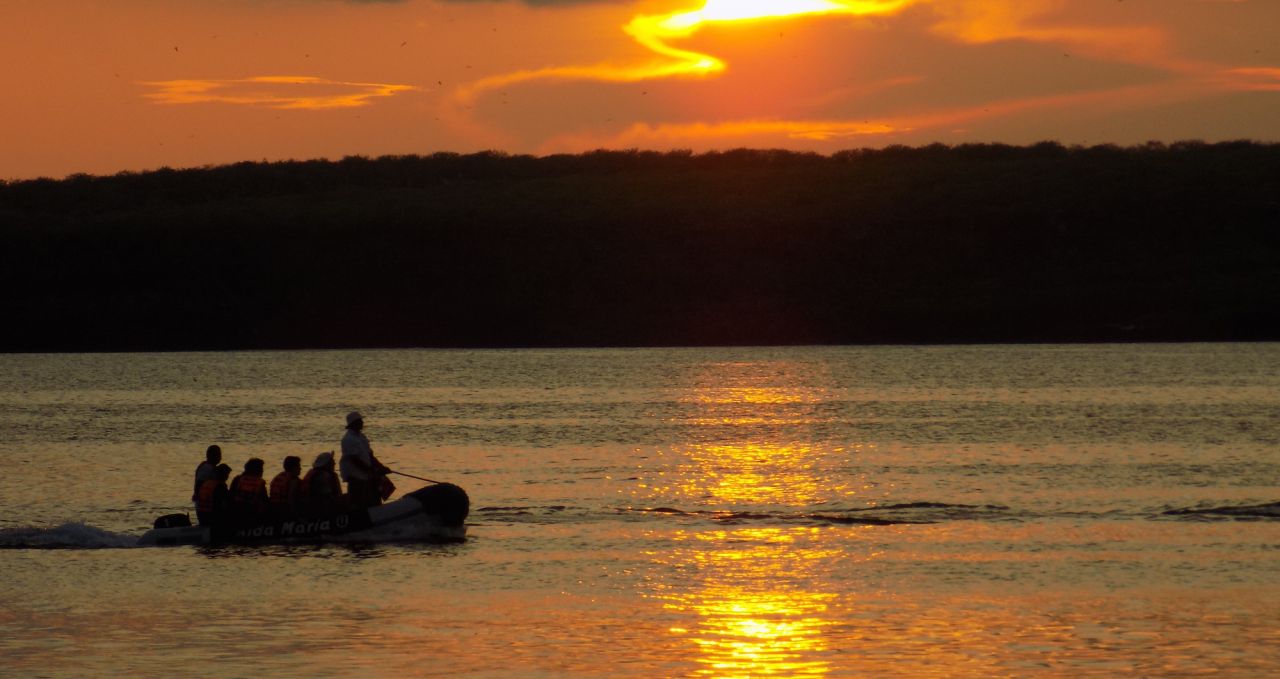
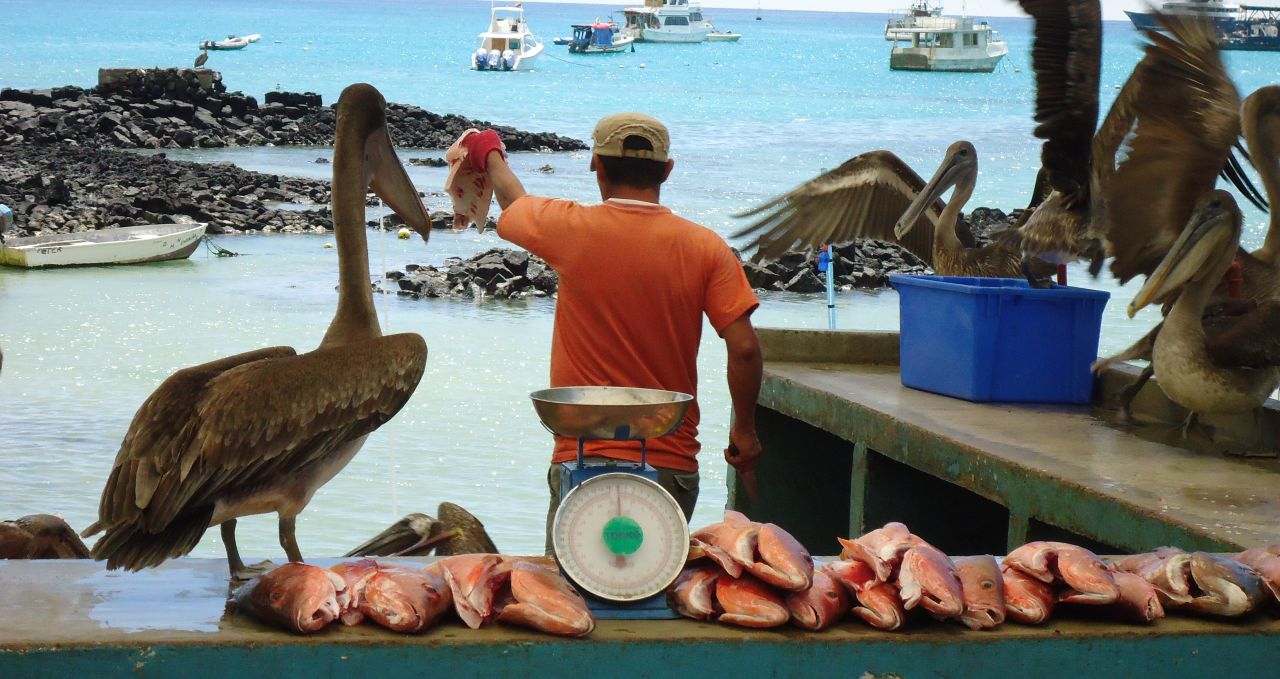
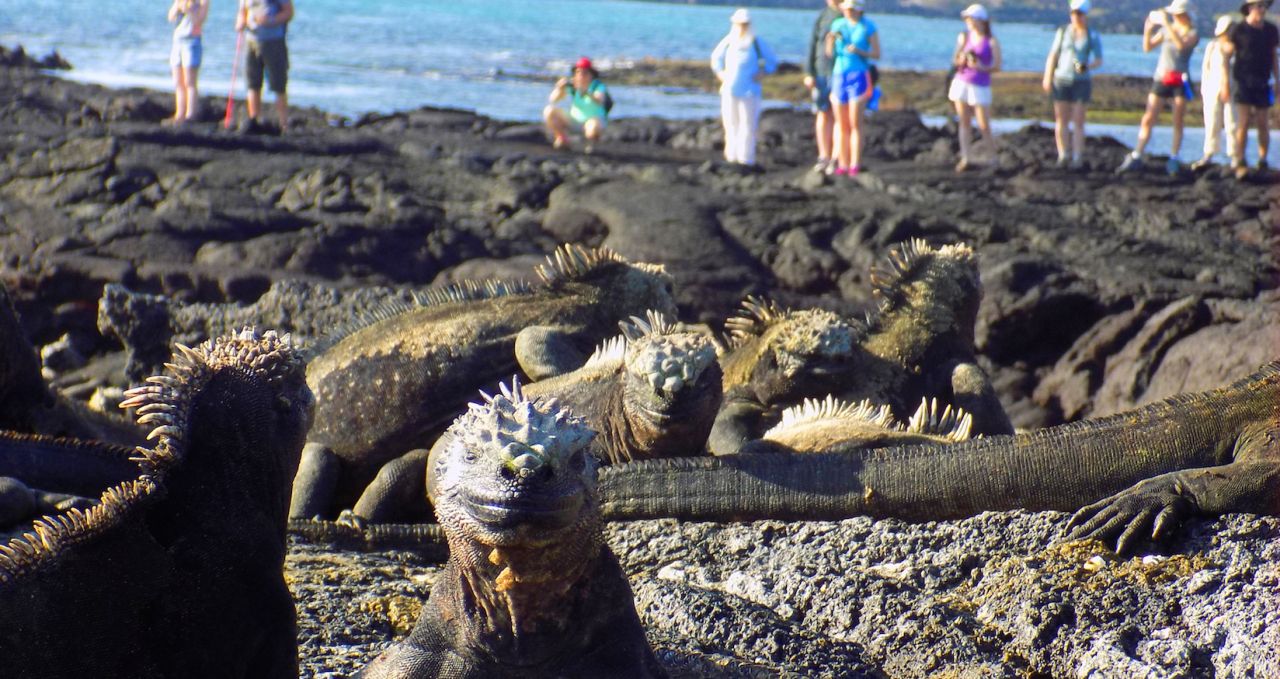
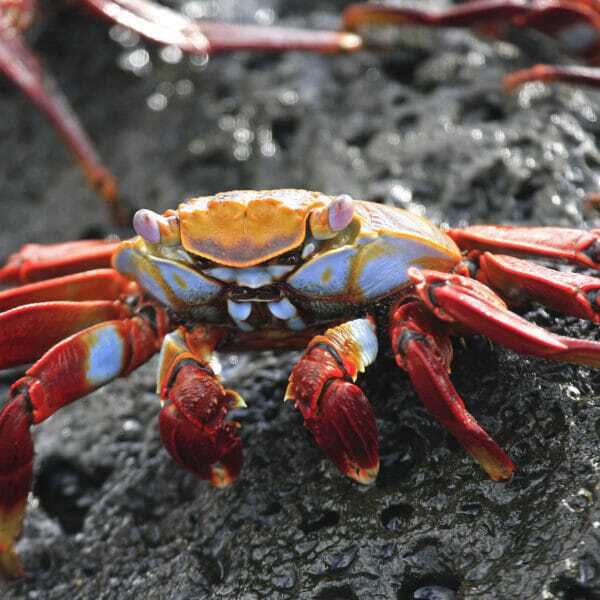
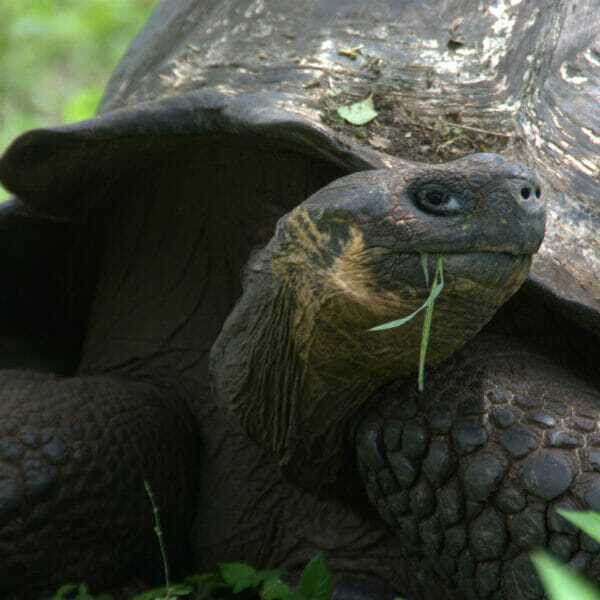
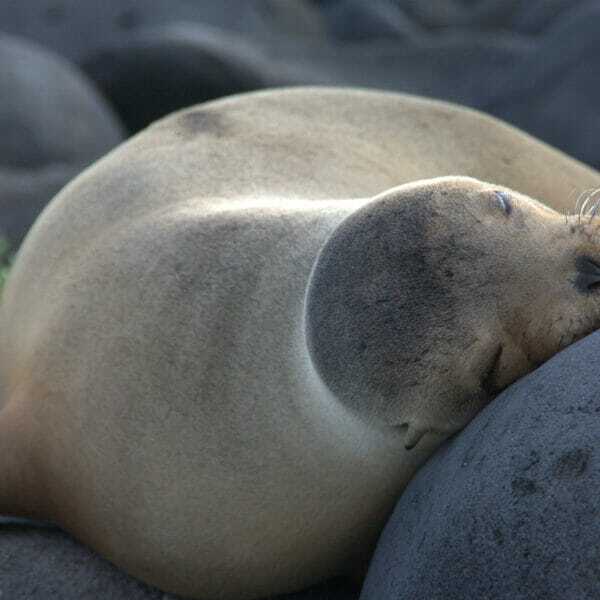
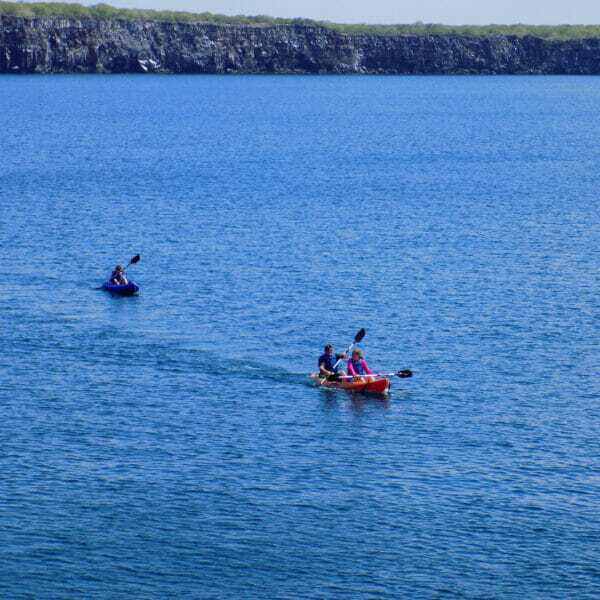
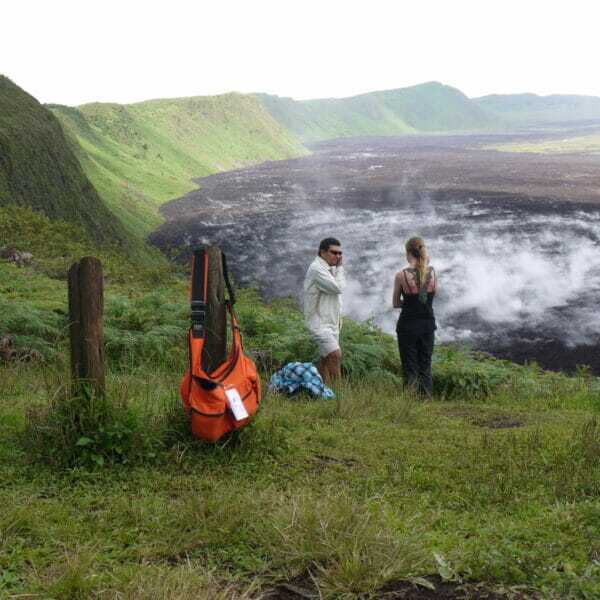
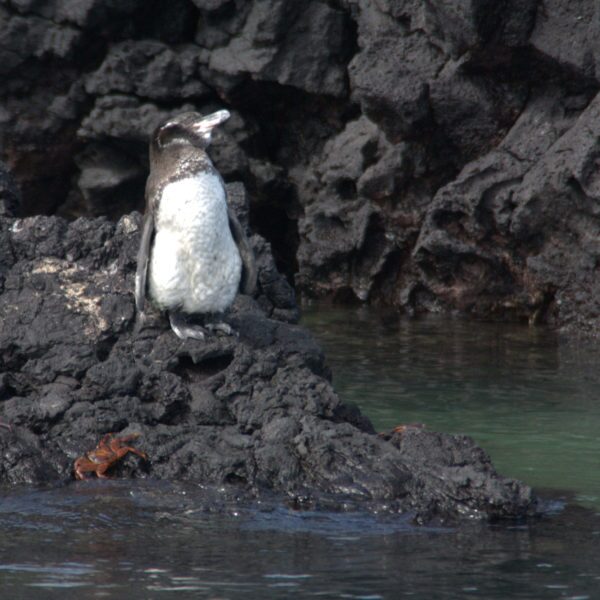
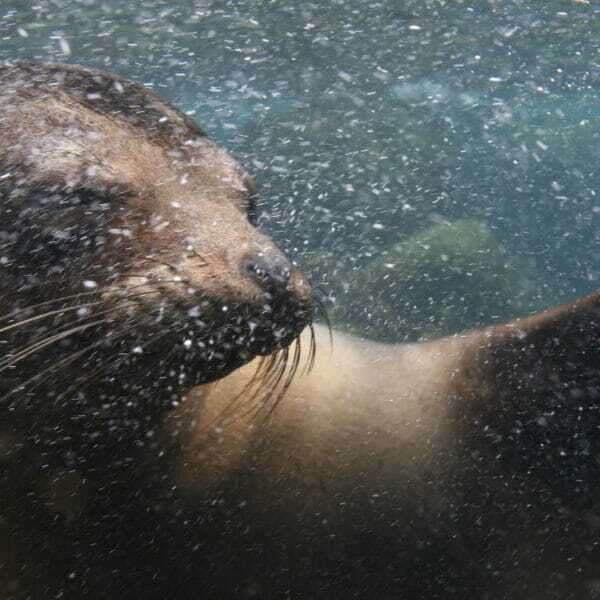
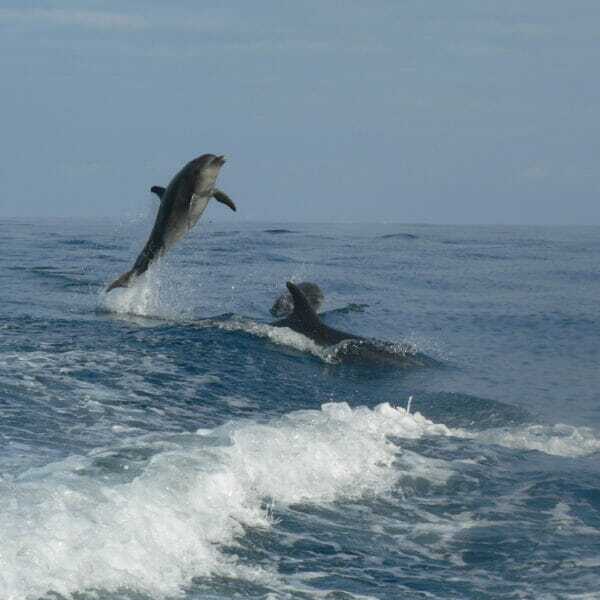
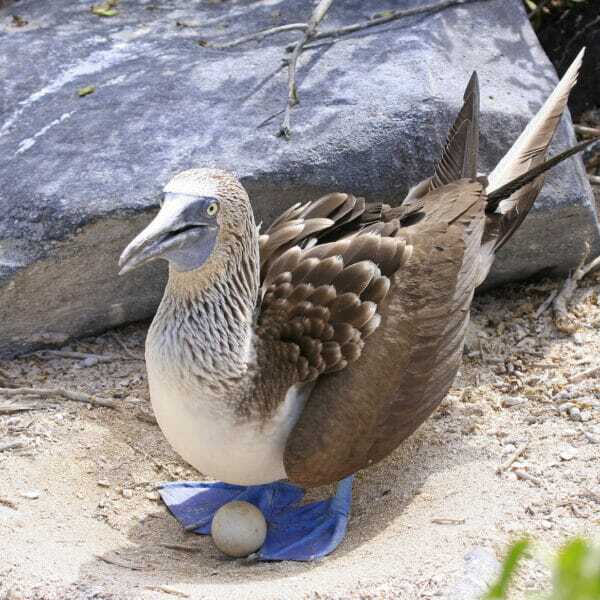
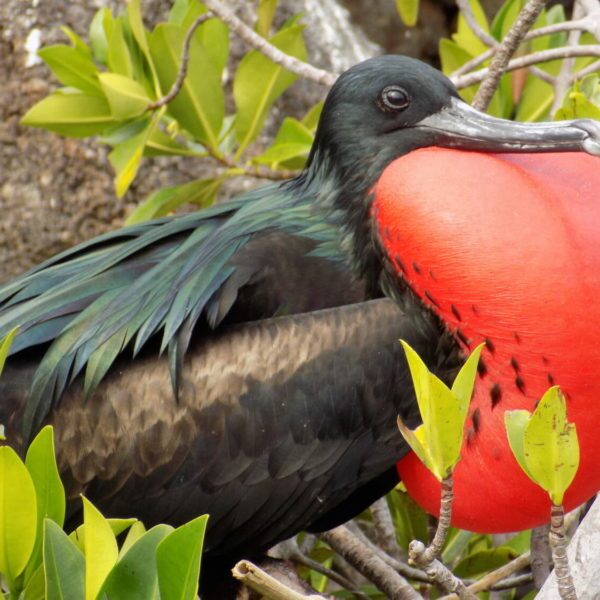
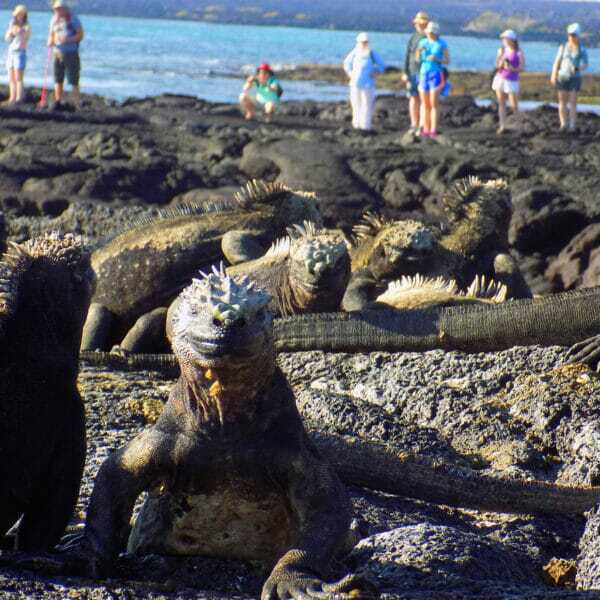
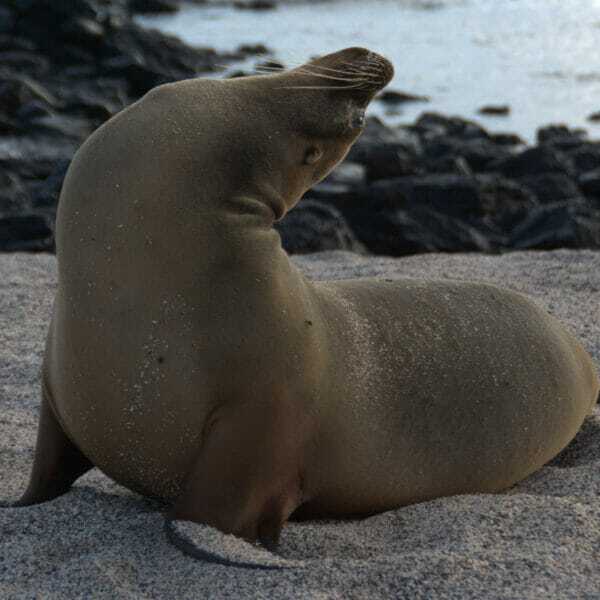
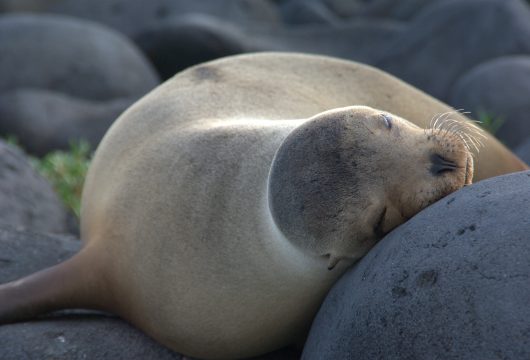

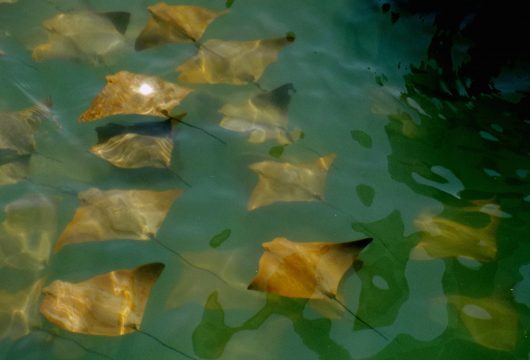
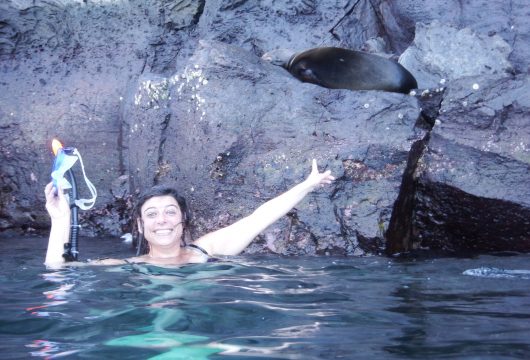
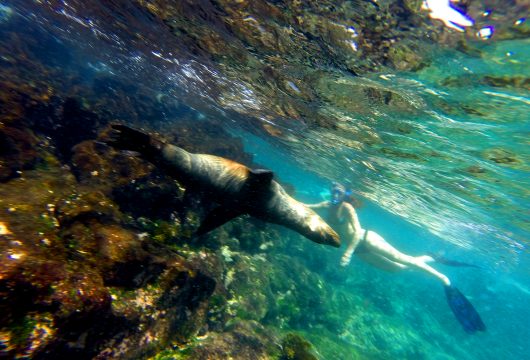
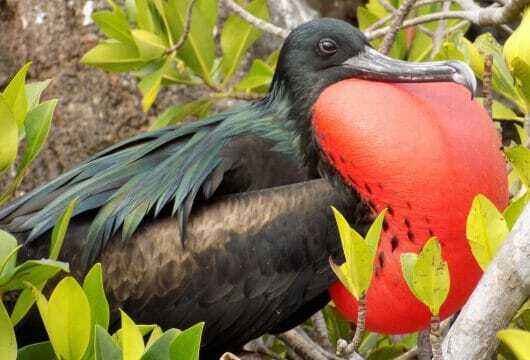
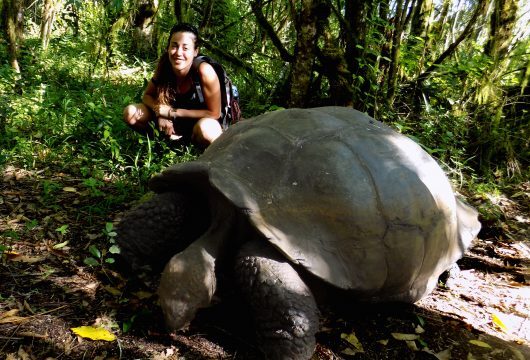
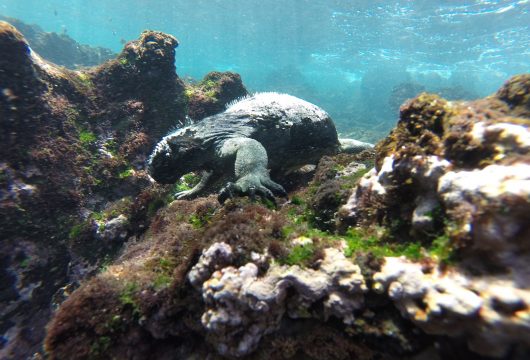
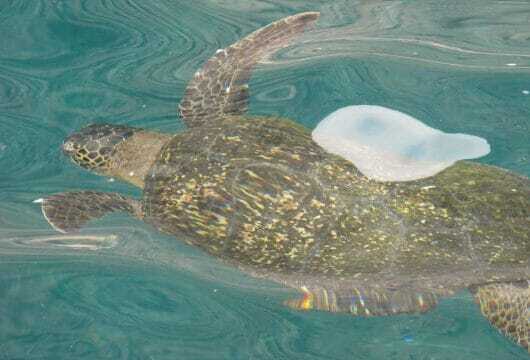
 a Group Tour
a Group Tour  a Tailor Made Tour
a Tailor Made Tour 